The 100 Greatest Literary Characters
The 100 Greatest Literary Characters
James Plath
Gail Sinclair
Kirk Curnutt
ROWMAN & LITTLEFIELD
Lanham Boulder New York London
Published by Rowman & Littlefield
An imprint of The Rowman & Littlefield Publishing Group, Inc.
4501 Forbes Boulevard, Suite 200, Lanham, Maryland 20706
www.rowman.com
6 Tinworth Street, London, SE11 5AL, United Kingdom
Copyright 2019 by The Rowman & Littlefield Publishing Group, Inc.
All rights reserved . No part of this book may be reproduced in any form or by any electronic or mechanical means, including information storage and retrieval systems, without written permission from the publisher, except by a reviewer who may quote passages in a review.
British Library Cataloguing in Publication Information Available
Library of Congress Cataloging-in-Publication Data
Names: Plath, James, author. | Sinclair, Gail D., author. | Curnutt, Kirk, 1964 author.
Title: The 100 greatest literary characters / James Plath, Gail Sinclair, Kirk Curnutt.
Other titles: One hundred greatest literary characters
Description: Lanham : Rowman & Littlefield, [2019] | Includes bibliographical references and index.
Identifiers: LCCN 2018054443 (print) | LCCN 2018059165 (ebook) | ISBN 9781538103760 (electronic) | ISBN 9781538103753 (cloth : alk. paper)
Subjects: LCSH: Fictitious characters. | American fictionHistory and criticism. | English fictionHistory and criticism.
Classification: LCC PS374.C43 (ebook) | LCC PS374.C43 .P54 2019 (print) | DDC 808.8/027dc23
LC record available at https://lccn.loc.gov/2018054443
 The paper used in this publication meets the minimum requirements of American National Standard for Information SciencesPermanence of Paper for Printed Library Materials, ANSI/NISO Z39.48-1992.
The paper used in this publication meets the minimum requirements of American National Standard for Information SciencesPermanence of Paper for Printed Library Materials, ANSI/NISO Z39.48-1992.
Printed in the United States of America
For readers past, present, and future,
including our own next generation of readers:
our children and grandchildren
Acknowledgments
We wish to express our gratitude to our respective universities and support staff and to thank the 100 teachers, scholars, librarians, writers, editors, and book lovers who answered our best characters questionnaireespecially those who went beyond what was asked for: Edward Allen, Jackson R. Bryer, Donald J. Greiner, Brian Keener, Edward J. Manley, Larry Mazzeno, Susan Jaret McKinstry, Lorne Mook, Sharon Neal, Judith Newman, Kathleen OGorman, Carolyn Segal, Brian Steffen, Frederic Svoboda, Judith Valente, Martha Modena Vertreace-Doody, Frank Waterstraat, and Jim Zelenski. We are also grateful for the patience and support of our Rowman & Littlefield editor, Stephen Ryan.
Introduction
Writer John Gardner once remarked, The first thing that makes a reader read a book is the characters. Behind every great book is a great character, and as Gabriel Garca Mrquez reminds us, In every novel, the character is a collage: a collage of different characters that youve known or heard about or read about. If the characters come alive, the novel comes alive. But among those great books and great characters, which ones stand out?
A Google advanced algorithm estimates that in modern history close to 130 million books have been published. Meanwhile, R. R. Bowker, the company that compiles a running list of books in print, estimates that in any given year there are approximately 275,000 classifiable books published, with some 43,000 of them likely to be fiction. Obviously, its humanly impossible to read them all, and that alone makes it equally impossible to come up with a definitive list of 100 Greatest Fictional Characters in Literature. But if you lean heavily, as we did, in the direction of time-honored reader favorites, prototypes, and cultural influencerscharacters who have become larger than their lives on the pagethe task becomes slightly easier. We decided to prioritize those who have somehow entered the collective public consciousness, ones who were influential models for others to follow, and ones who have been so popular with readers that they have become significant, memorable, or even cherished. But to avoid an overly familiar list, we have also included characters who are so vibrant and alive that they deserve to be in such good company.
Because lists naturally reflect the knowledge gaps and inherent biases of their makers, we sought to compensate by consulting numerous reader- and industry-chosen lists and by polling 100 writers, professors, librarians, teachers, and book loverswhich, incidentally, is roughly twice the number that the now-defunct Book magazine polled when they created their frequently cited 100 Best Characters in Fiction list. We coauthors specialize in American literature, so we were especially diligent in seeking suggestions from people outside the areas we know best. So there was indeed a method to our madness. We began the process by assembling a baseline list compiled from our research, read those recommended novels and short stories with which we were unfamiliar, then met to discuss the characters and agree on additional reading and research. More meetings led to a shorter list, and with three coauthors that list turned out to be a negotiated compromise. Along the way, we investigated new characters who came to our attention. In addition to the eighty-five characters we agreed upon, to move the book beyond the familiar we decided that each of us should get a handful of discretionary picksstrong fictional personalities that we think ought to be included.
We considered notables from literary and popular fiction and from childrens literature, both classic and contemporary. In writing about the characters, we tried to describe them in such a way as to make clear why we think they belong in a volume such as this. As the author of Empathy and the Novel reminds us, Fictional characters can become mental companions to last a lifetime, and relationships across generations can be built around affection for a character or a fictional world. There are fictional figures in this volume who are beloved across generationseven centuriesbut to be included a character did not have to be lovable, heroic, or even likable. There are a great many in literature that are quite the opposite, yet theres something about them that makes them unforgettable.
Narrowing the number of characters to 100 proved challenging nonetheless, and there are a lot of deserving, memorable literary figures we had to omit. We deliberately tried to avoid picking multiple characters from single novels in order to create a broader list of books, and choosing a character within a single great novel proved yet another challenge. In the case of Huck Finn, for example, we could have just as easily gone with Jim, Hucks mentor, if it werent for the fact that Huck has interactions with a great many more people that he also learns from. Tom Joad was enough of a folk hero that Woody Guthrie wrote a song about him, but Ma Joad is the backbone of the family. And what character is more memorable, Frankensteins creature or the mad scientist who created him? Sometimes we went with the character without whom such a pairing would never have happened, but there were still tough calls every step of the way.
Our overall task was made only slightly easier by the fact that we were asked by the publisher to consider just fiction. If a characters first appearance was in a play, that person was ineligible, and the same with childrens picture books, epic poems, comic books, and graphic novels. Thats why theres no Odysseus, Beowulf, Don Juan, Lady Macbeth, Othello, or Willy Loman here, nor the Grinch, Batman, or Superman. Rowman & Littlefield hopes to publish separate volumes that will include such characters, and its just as well. The book we have assembled is crowded enough with important, colorful, and absorbing characters.
Next page
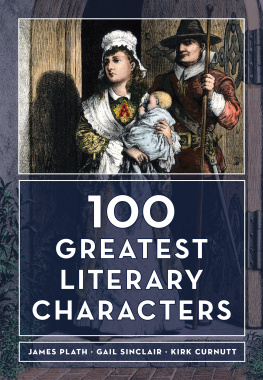
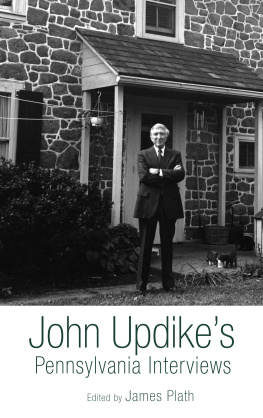

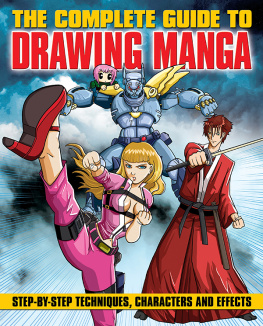
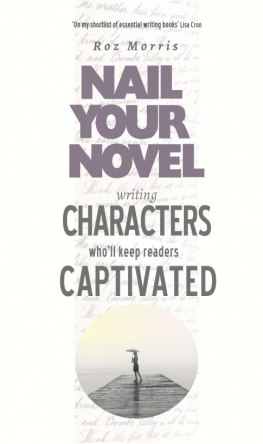
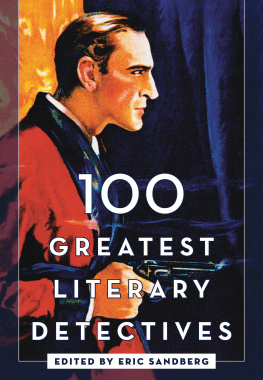
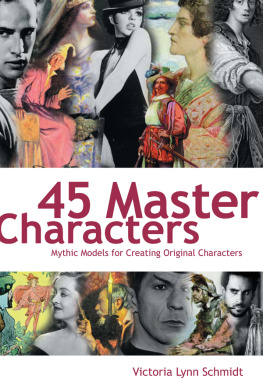
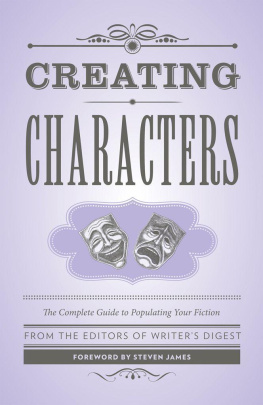
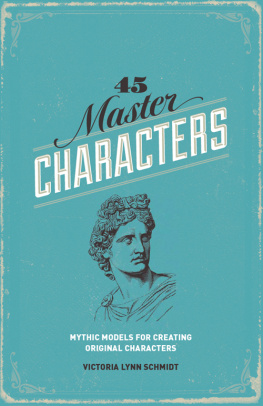
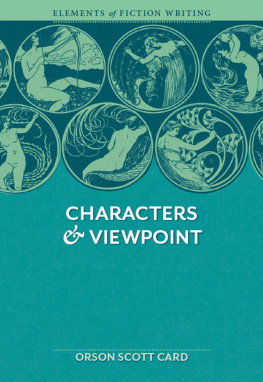
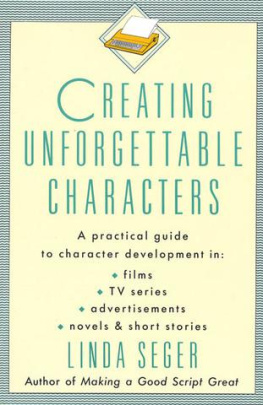
 The paper used in this publication meets the minimum requirements of American National Standard for Information SciencesPermanence of Paper for Printed Library Materials, ANSI/NISO Z39.48-1992.
The paper used in this publication meets the minimum requirements of American National Standard for Information SciencesPermanence of Paper for Printed Library Materials, ANSI/NISO Z39.48-1992.